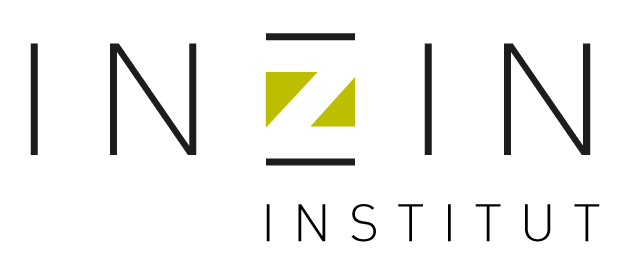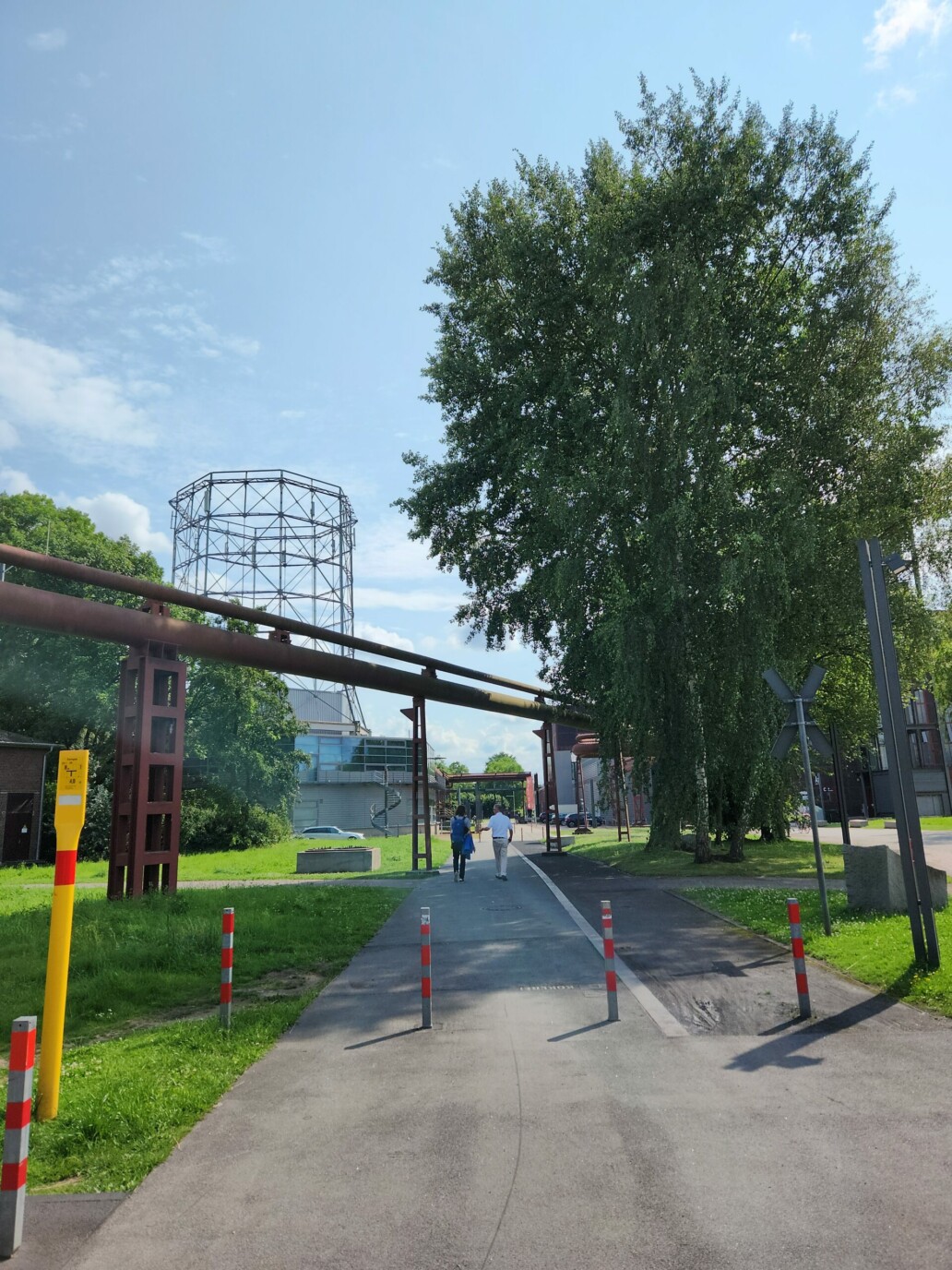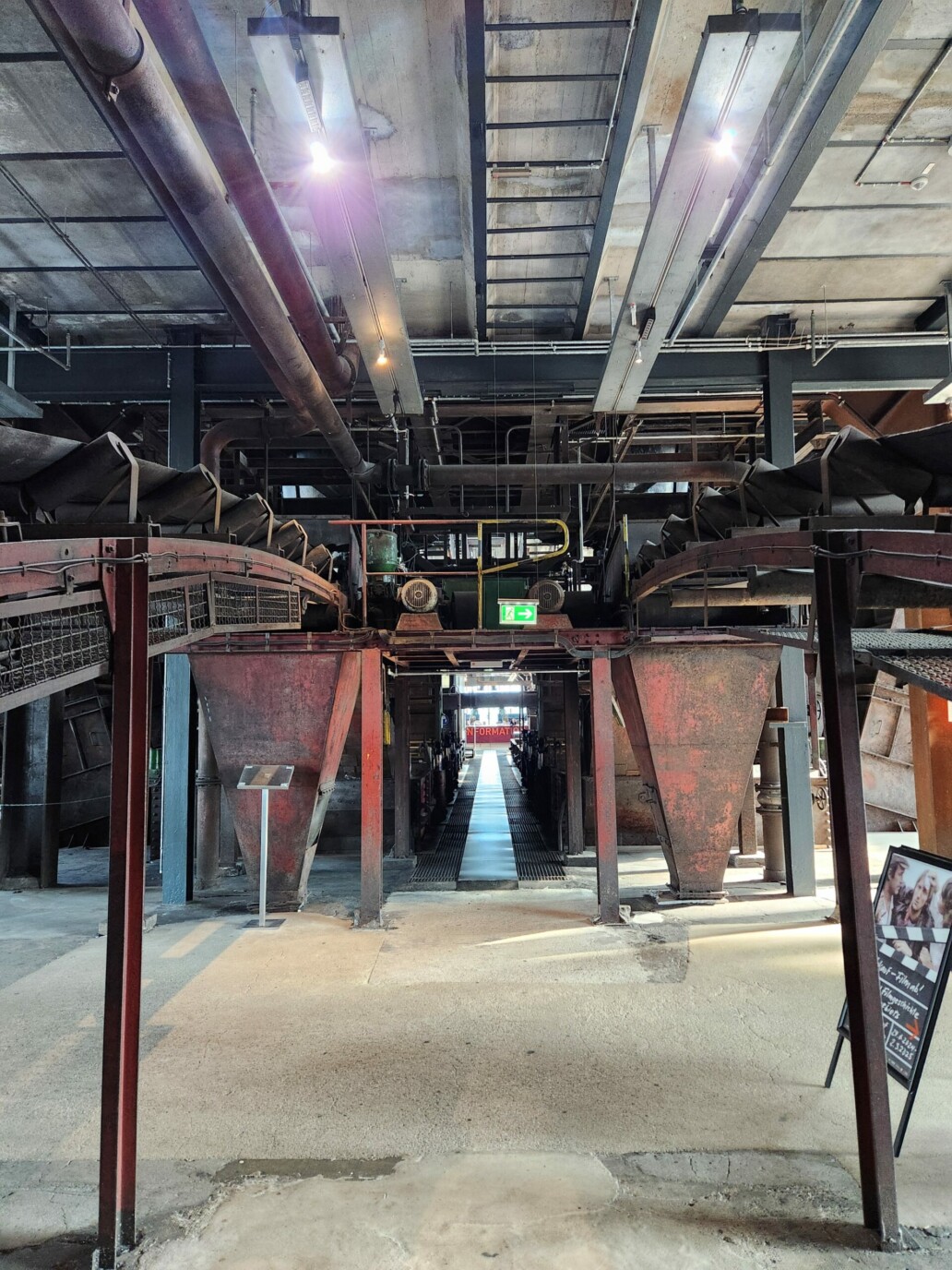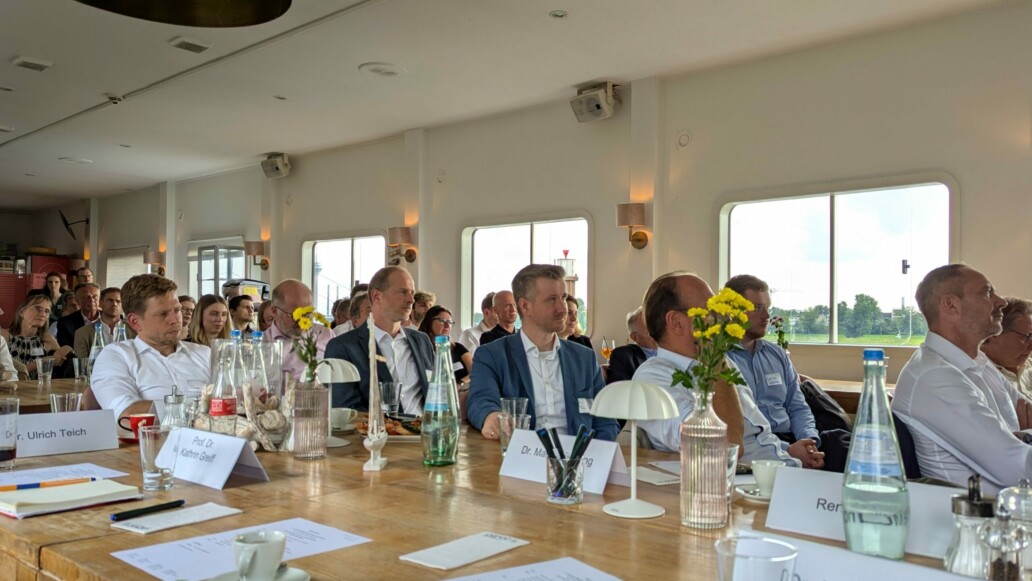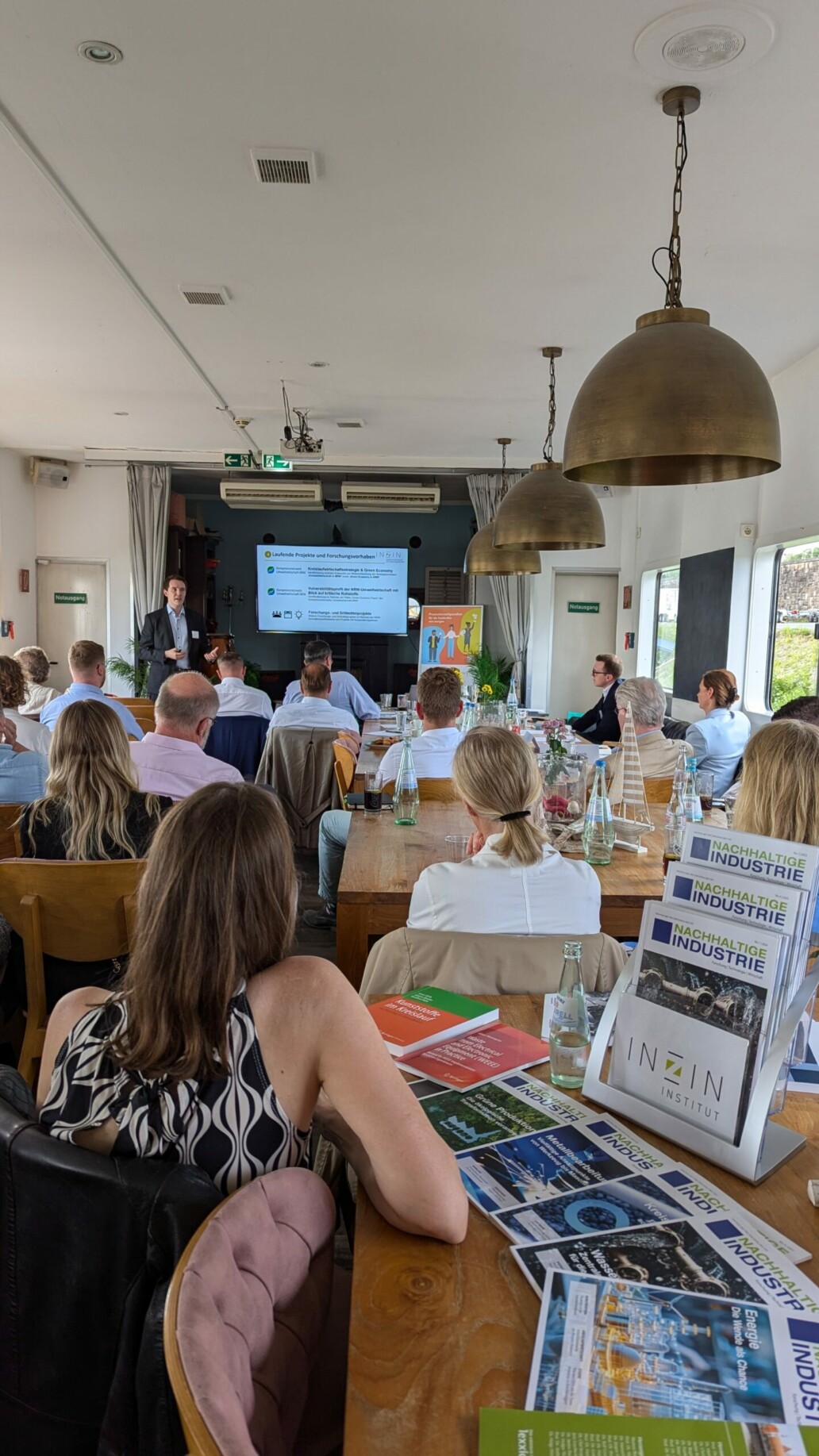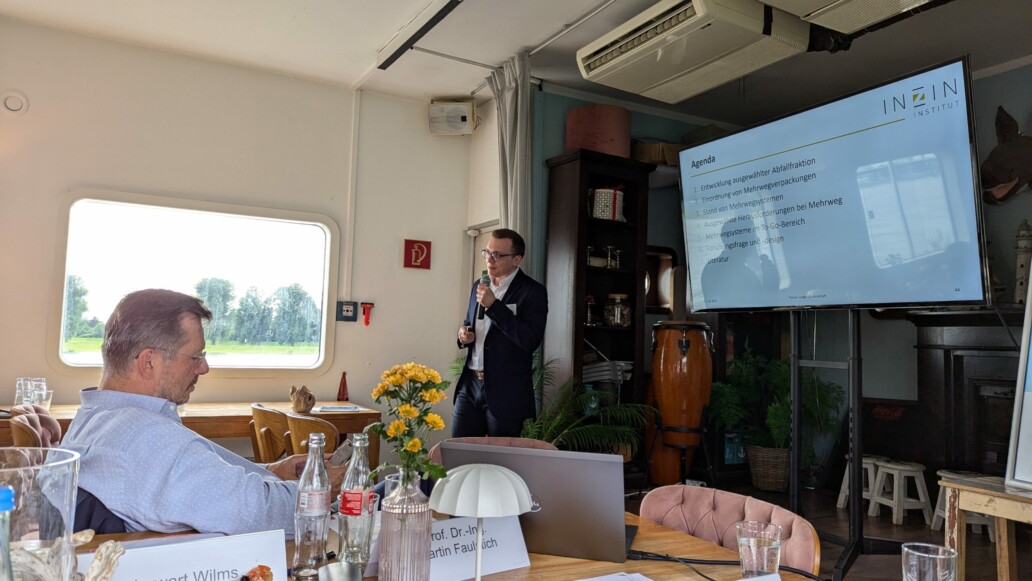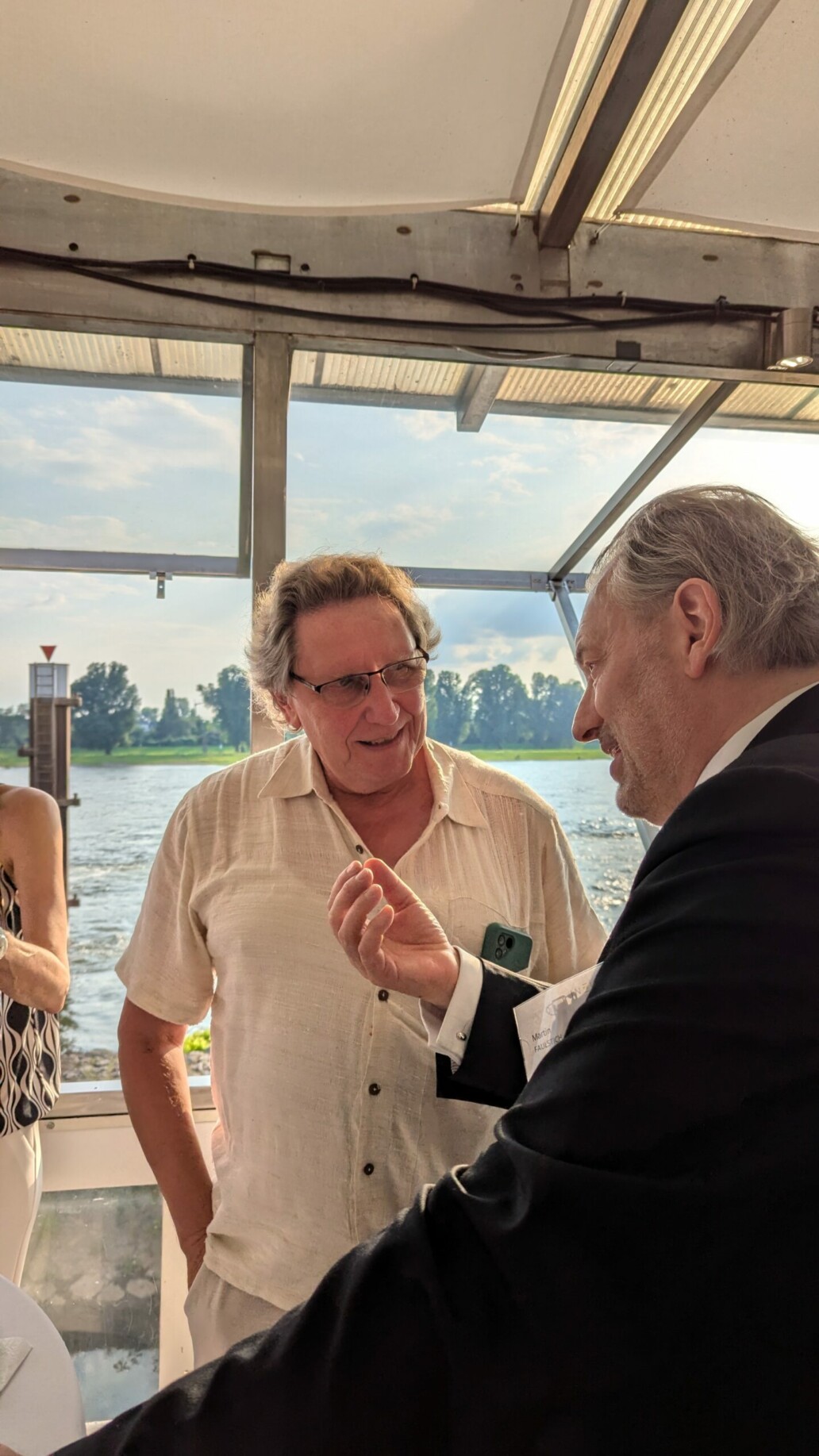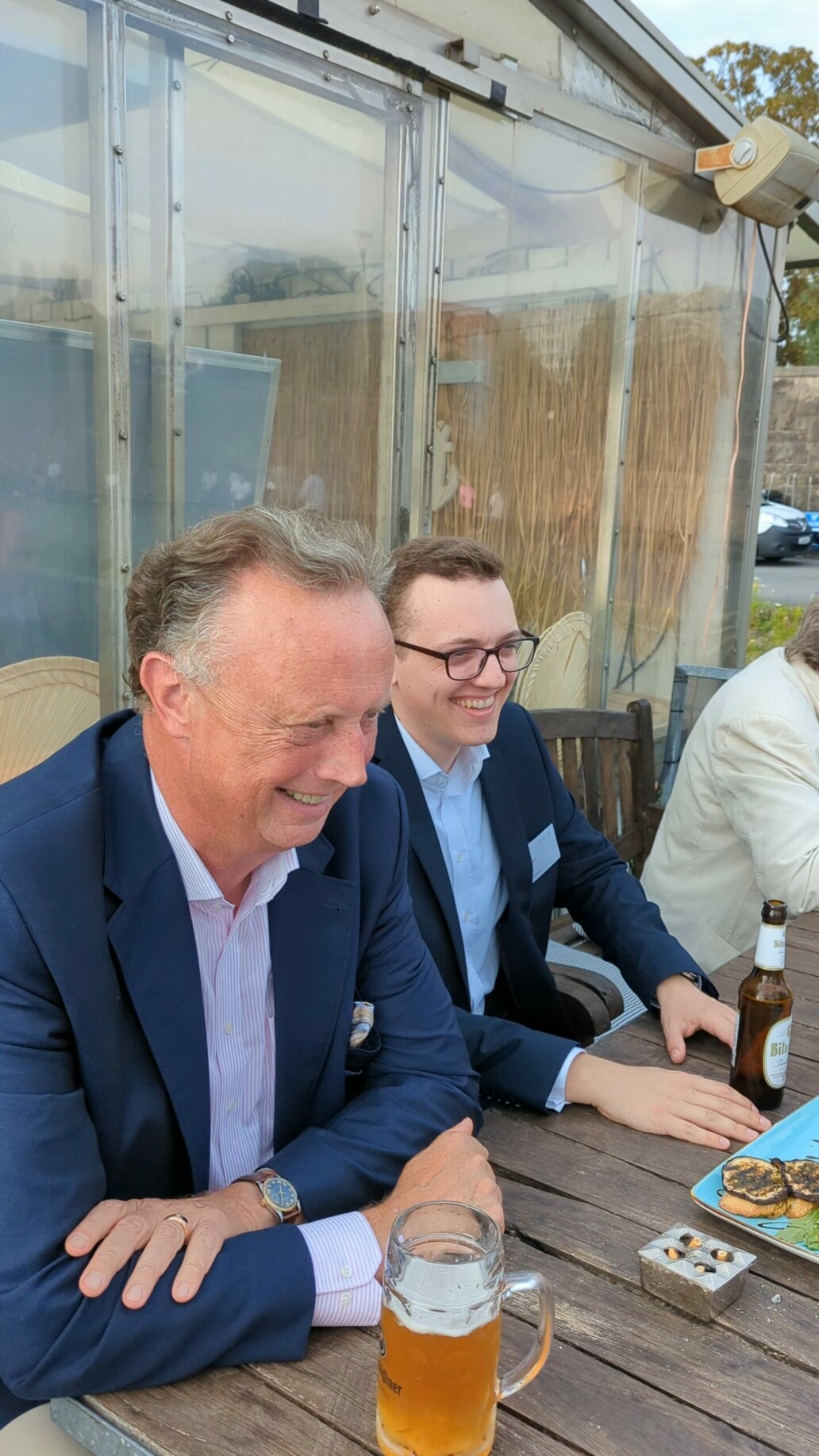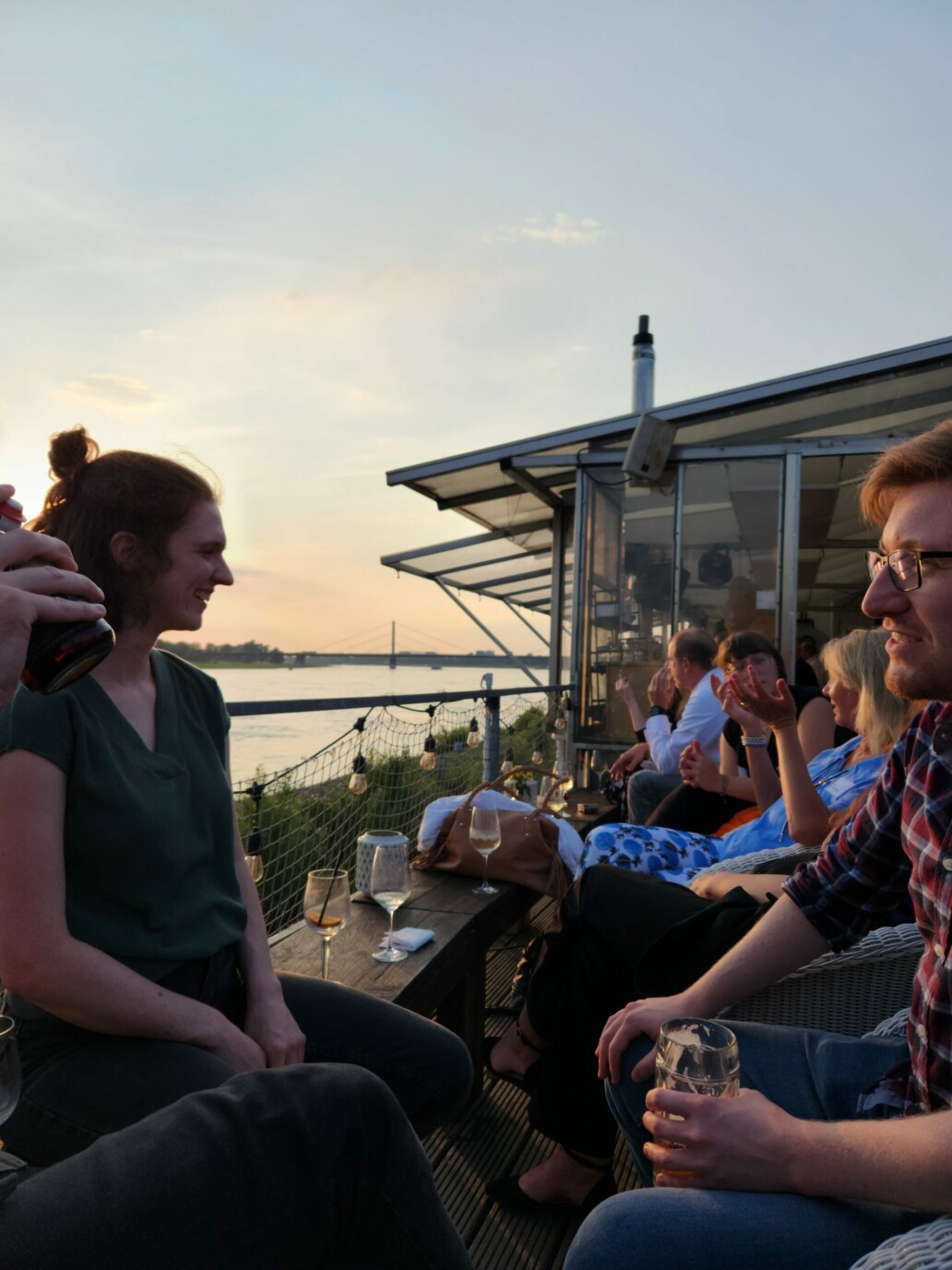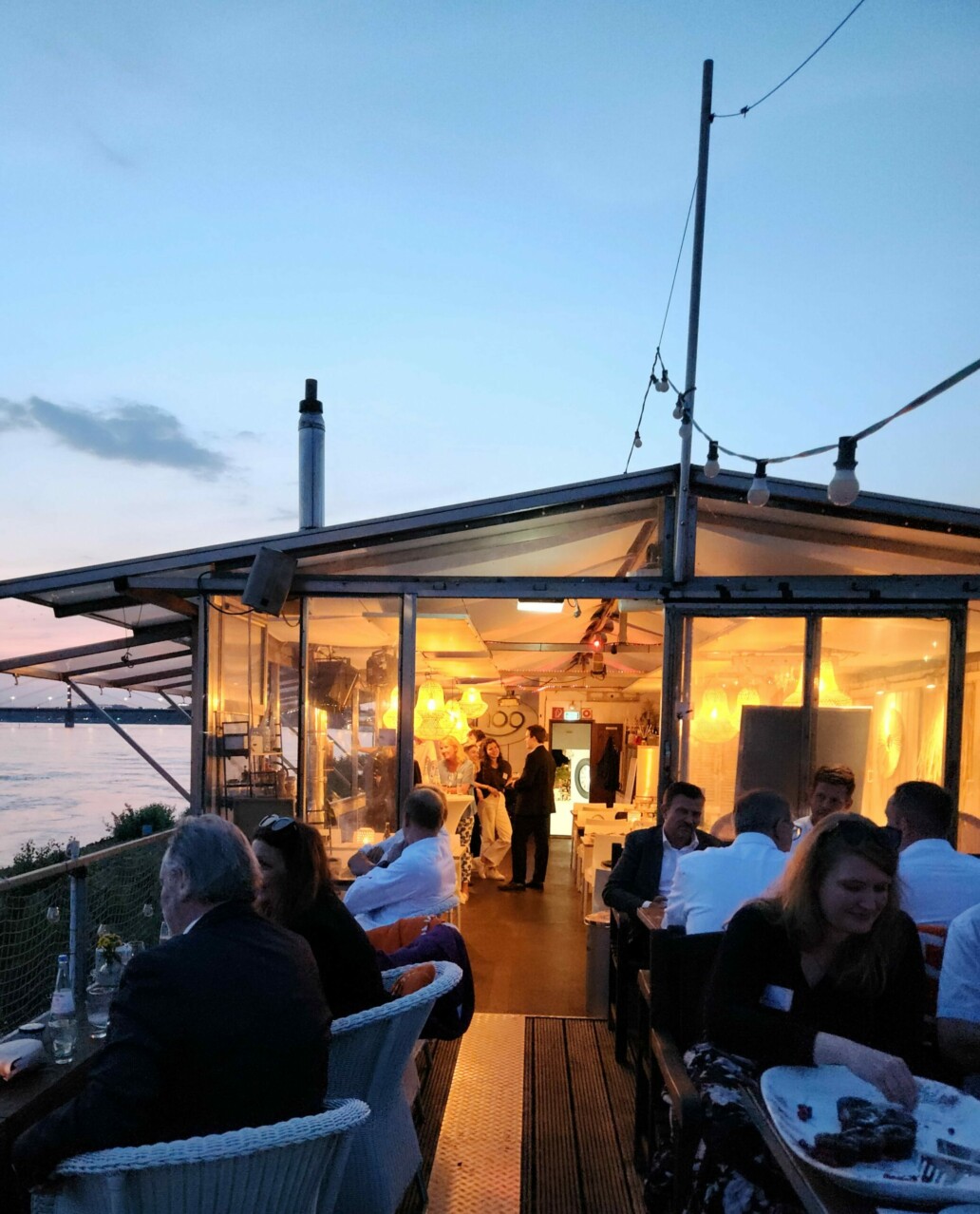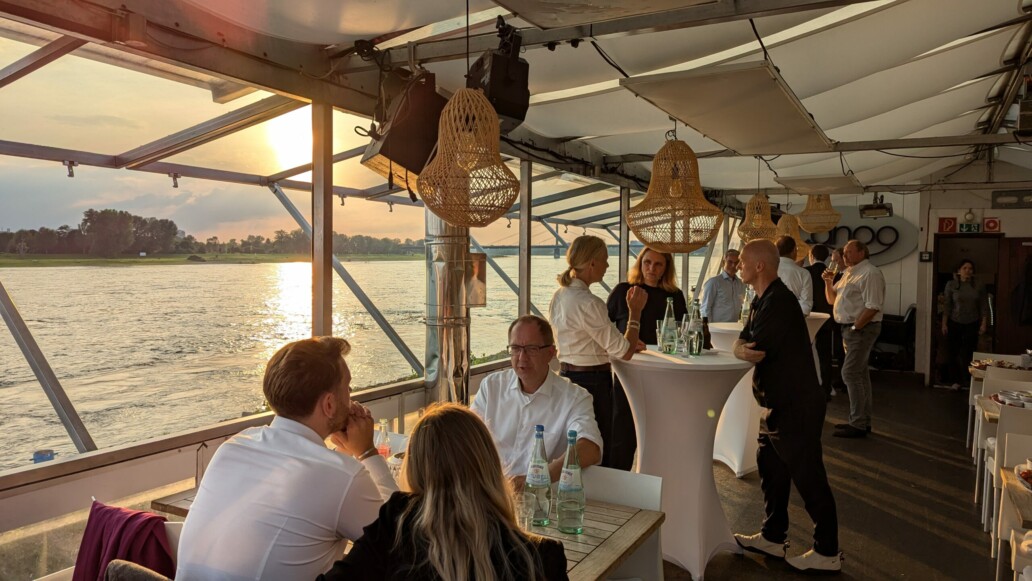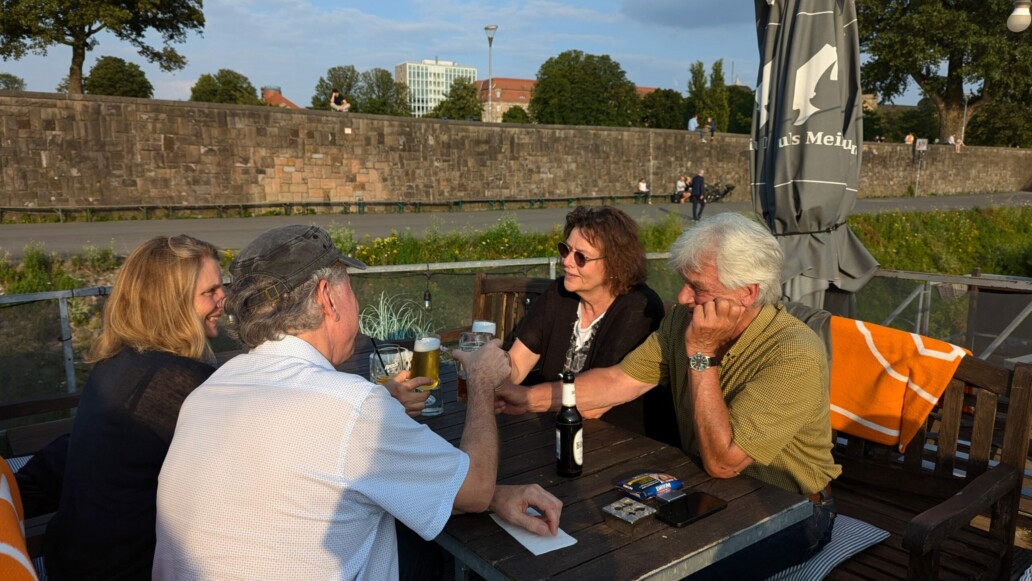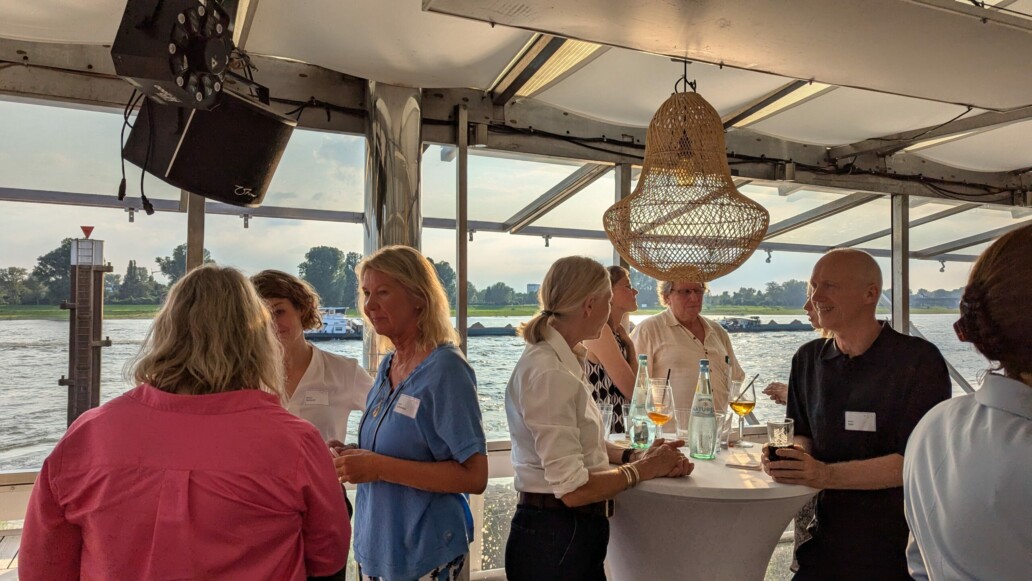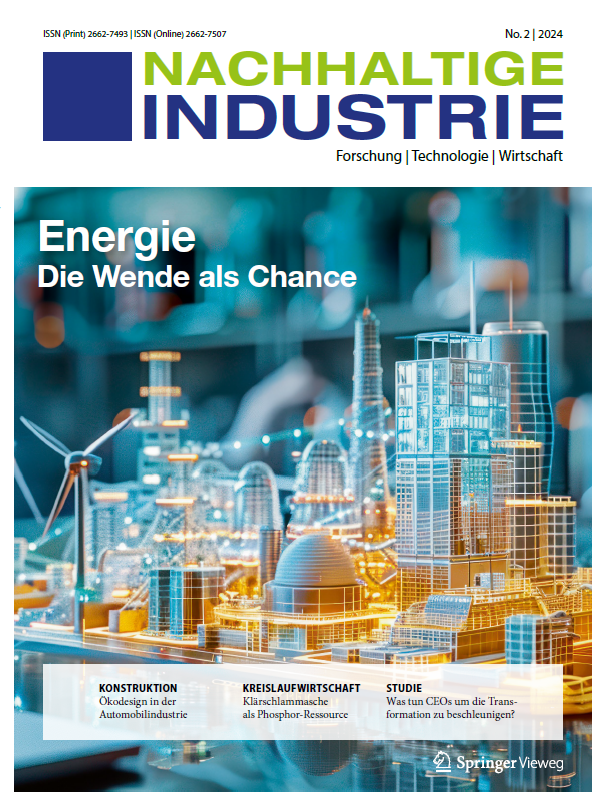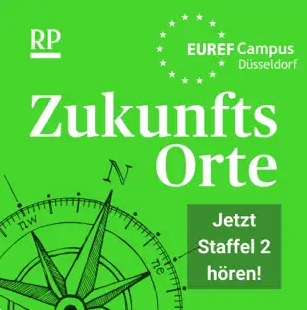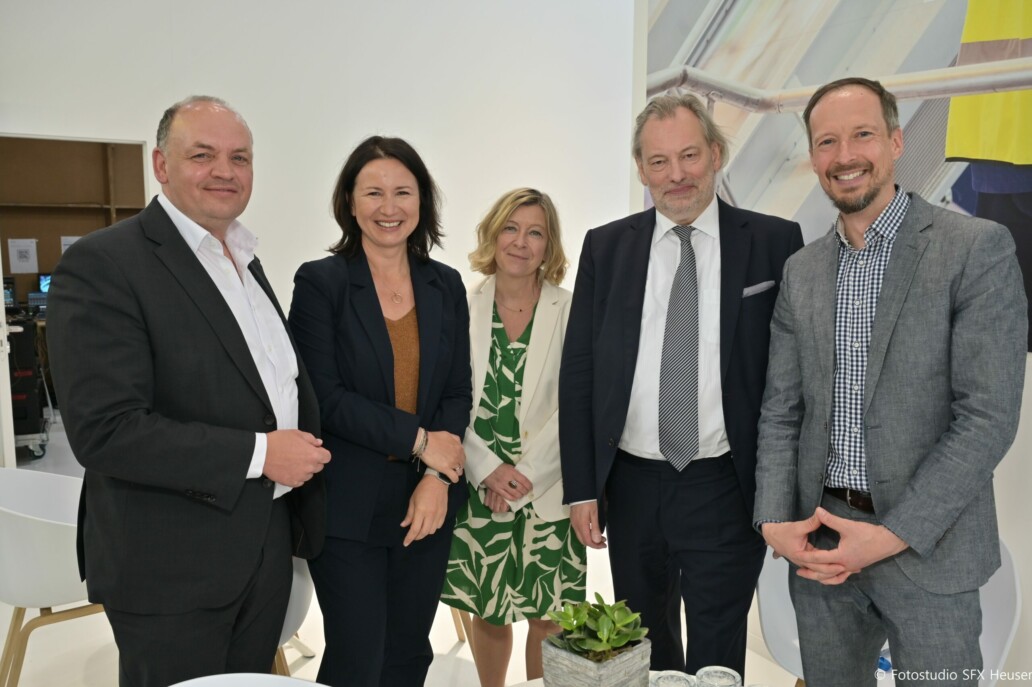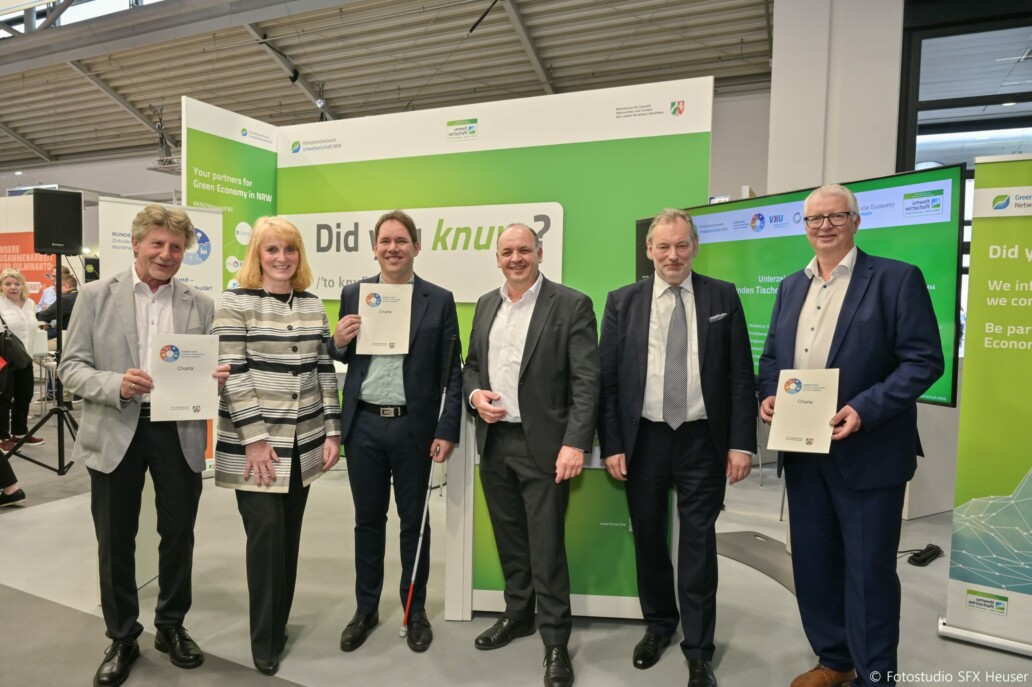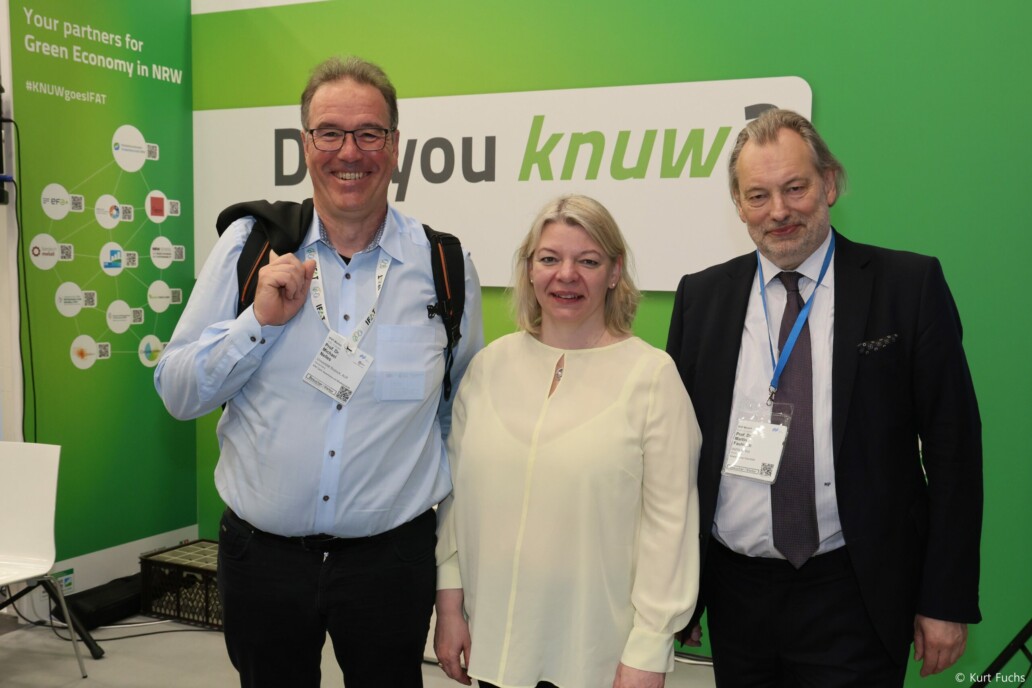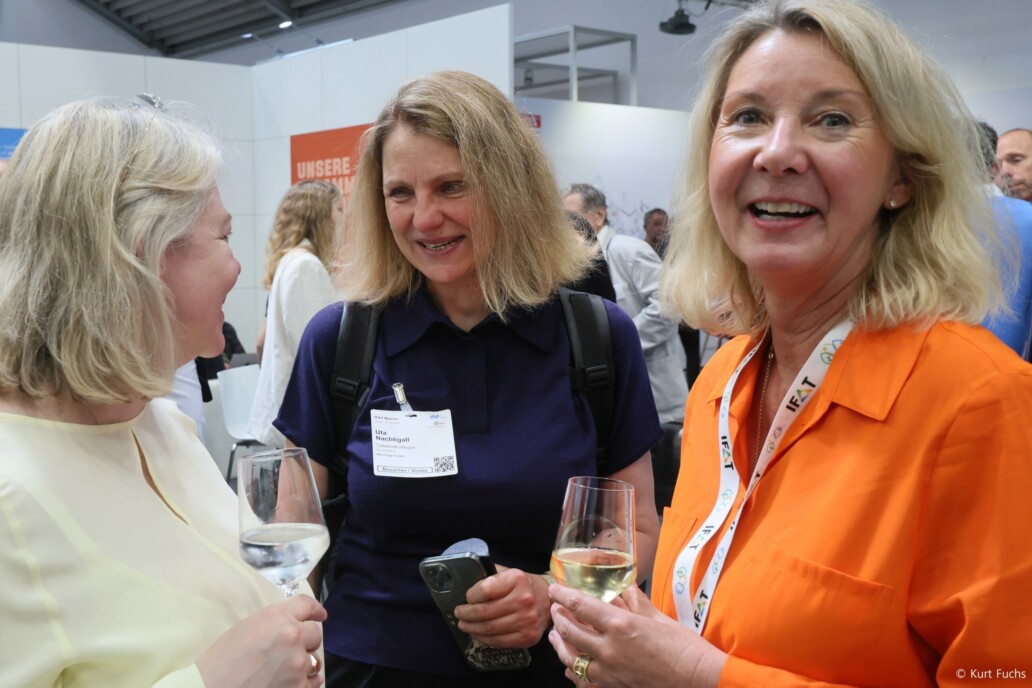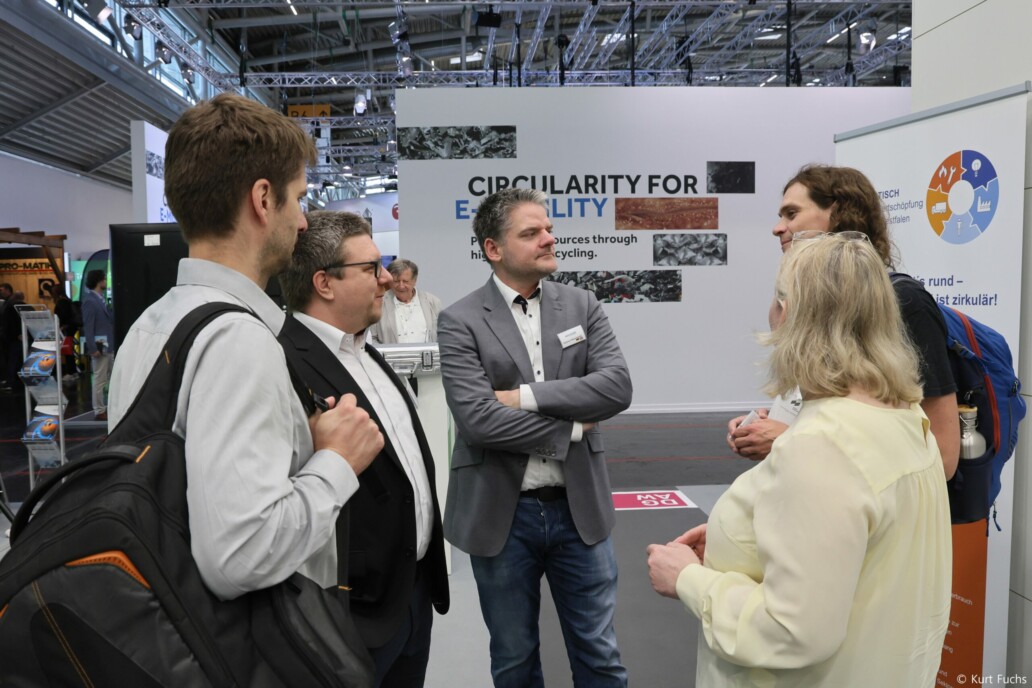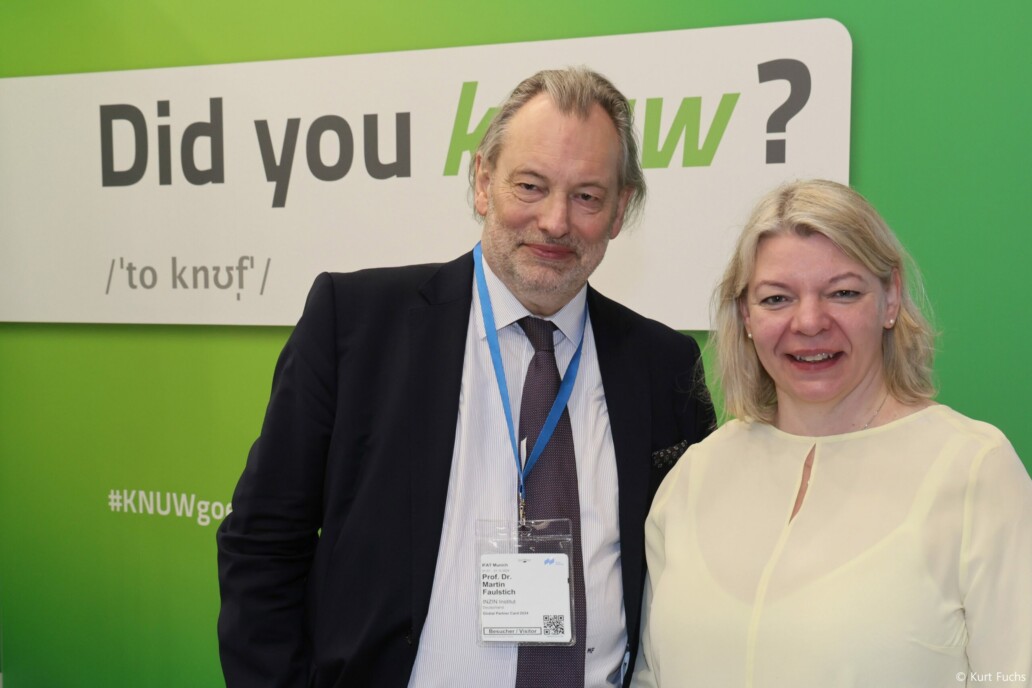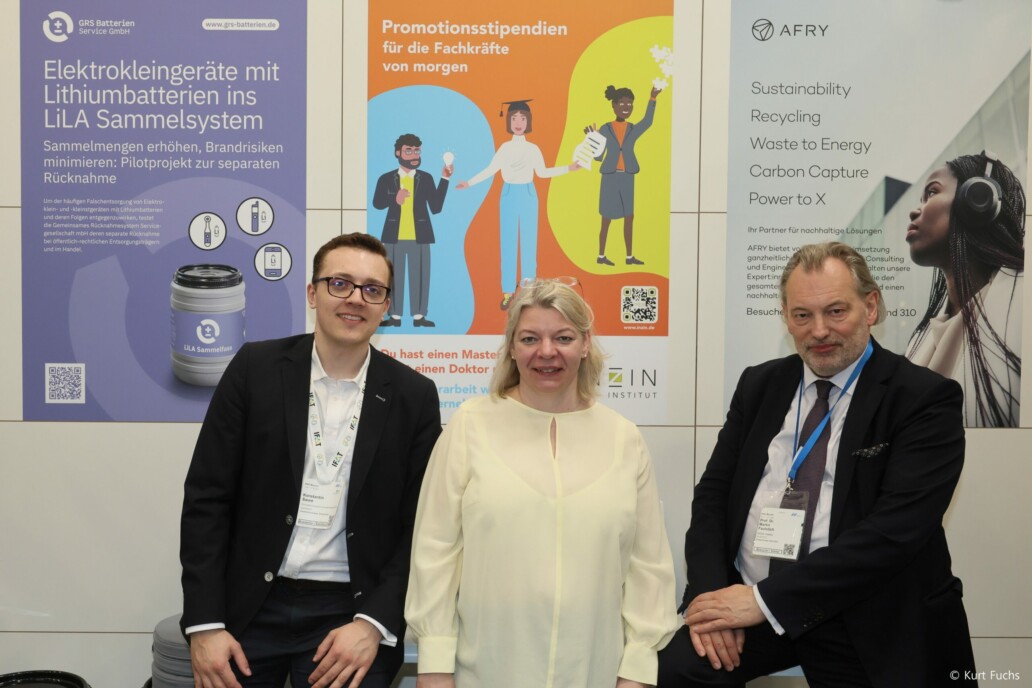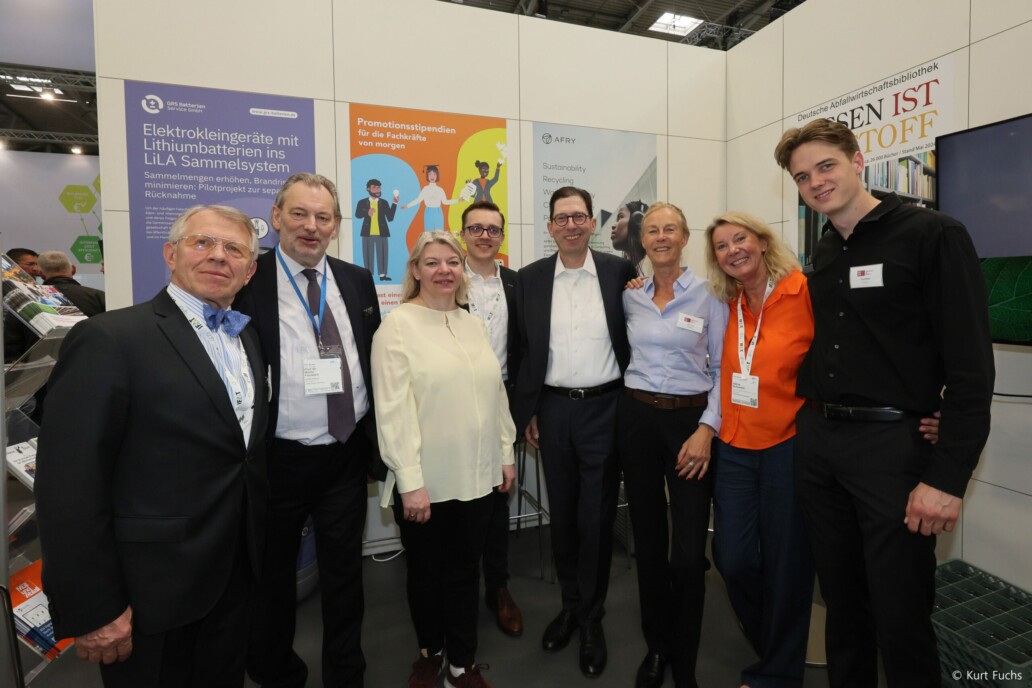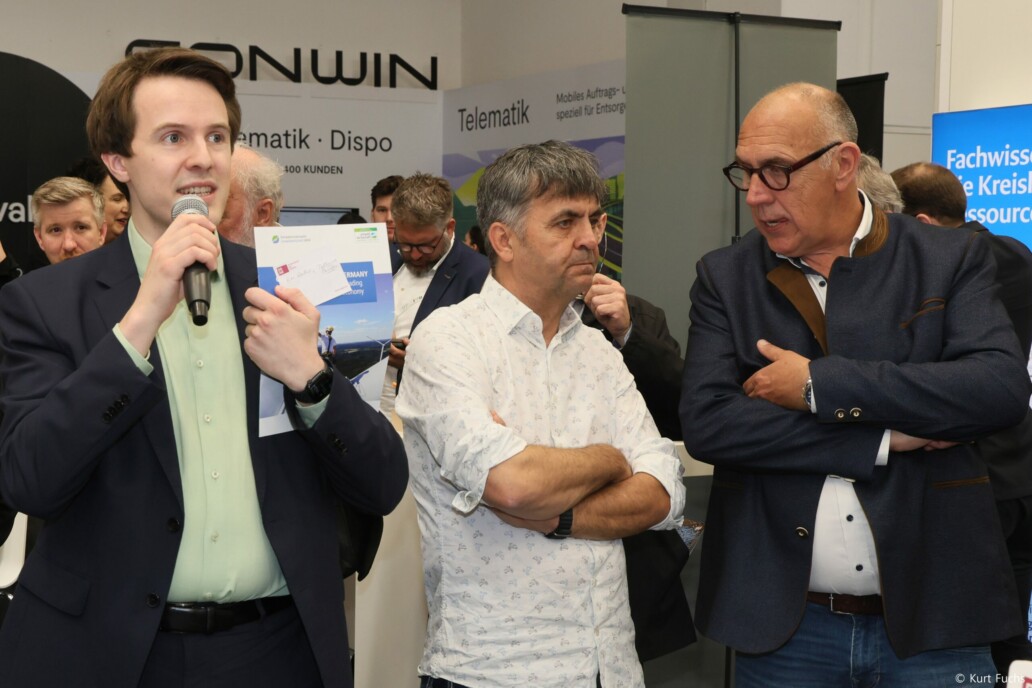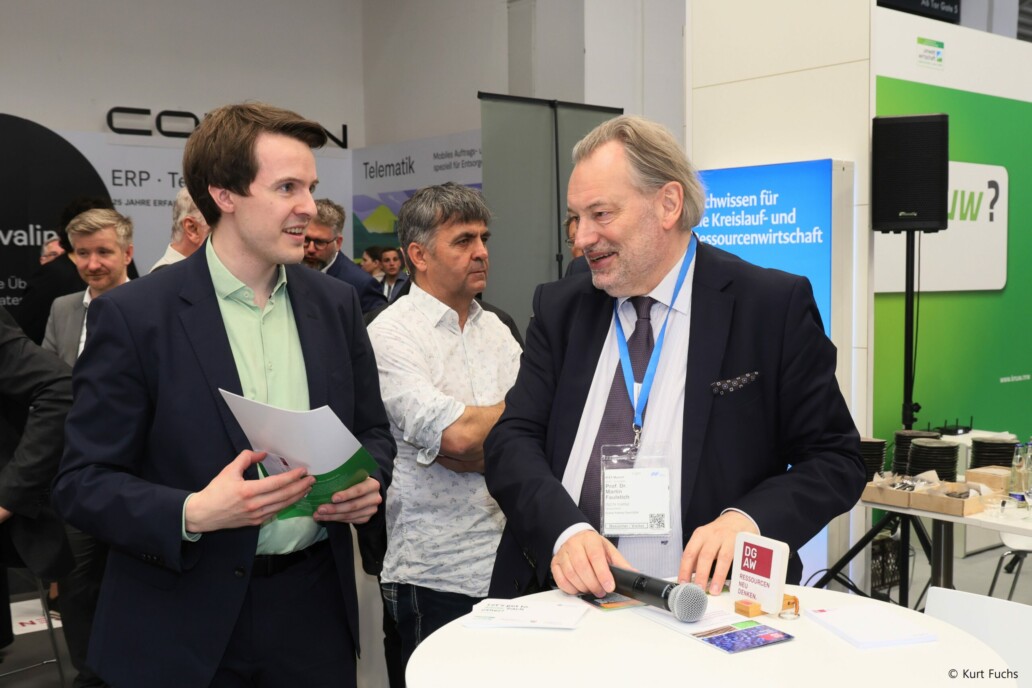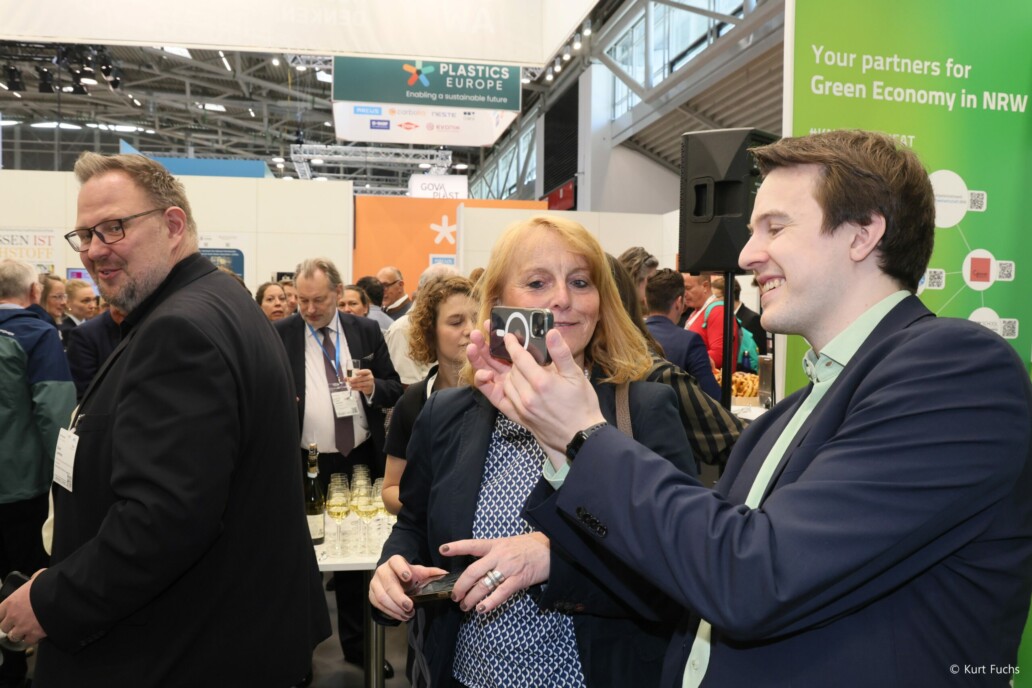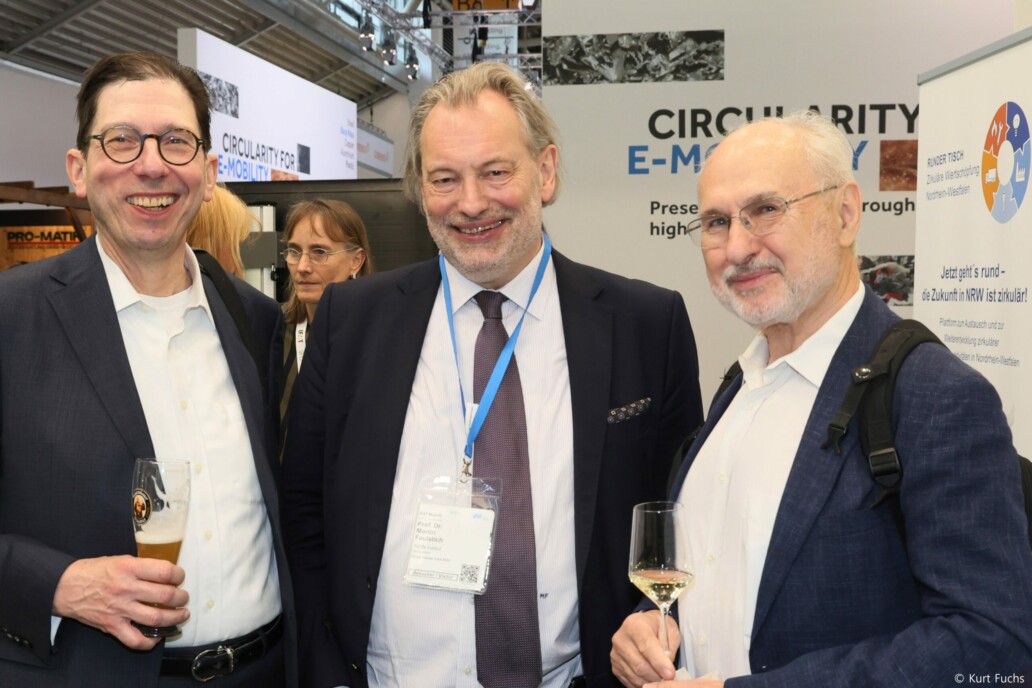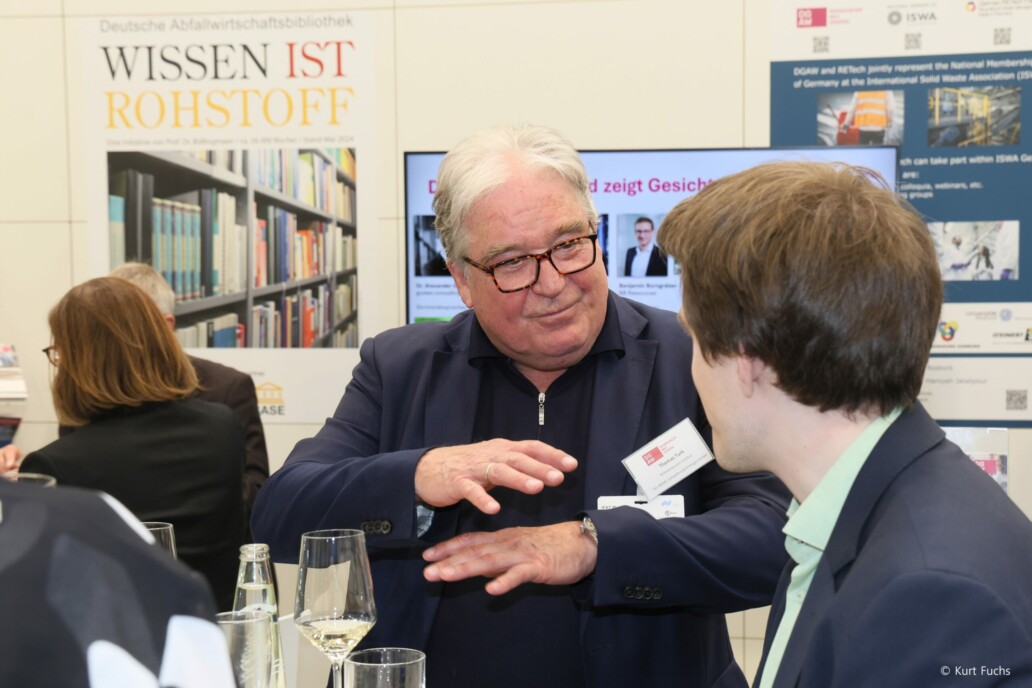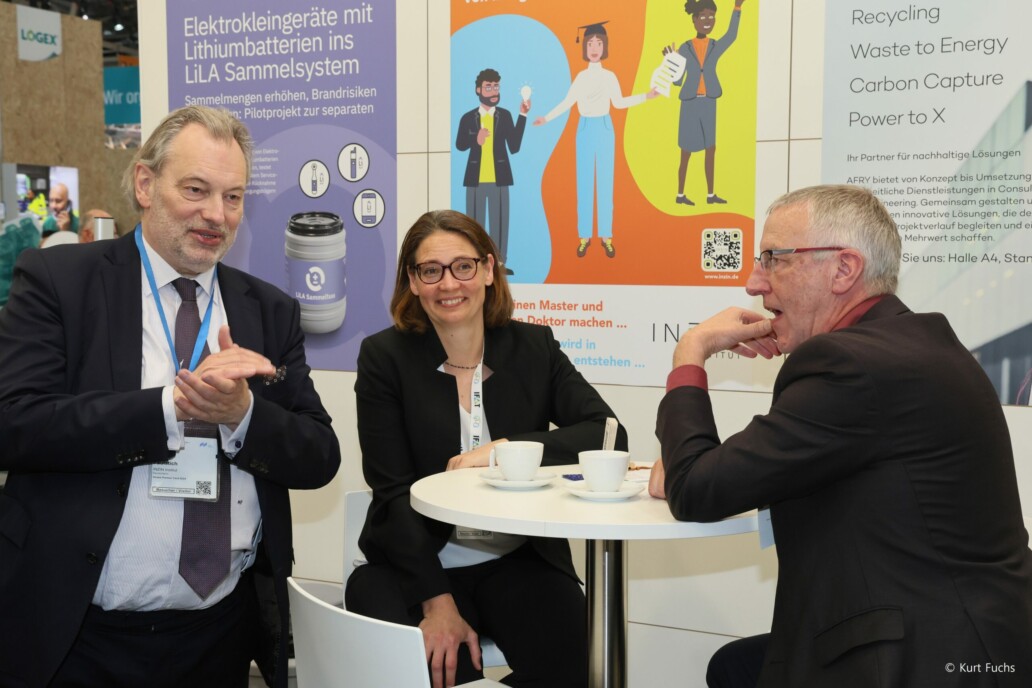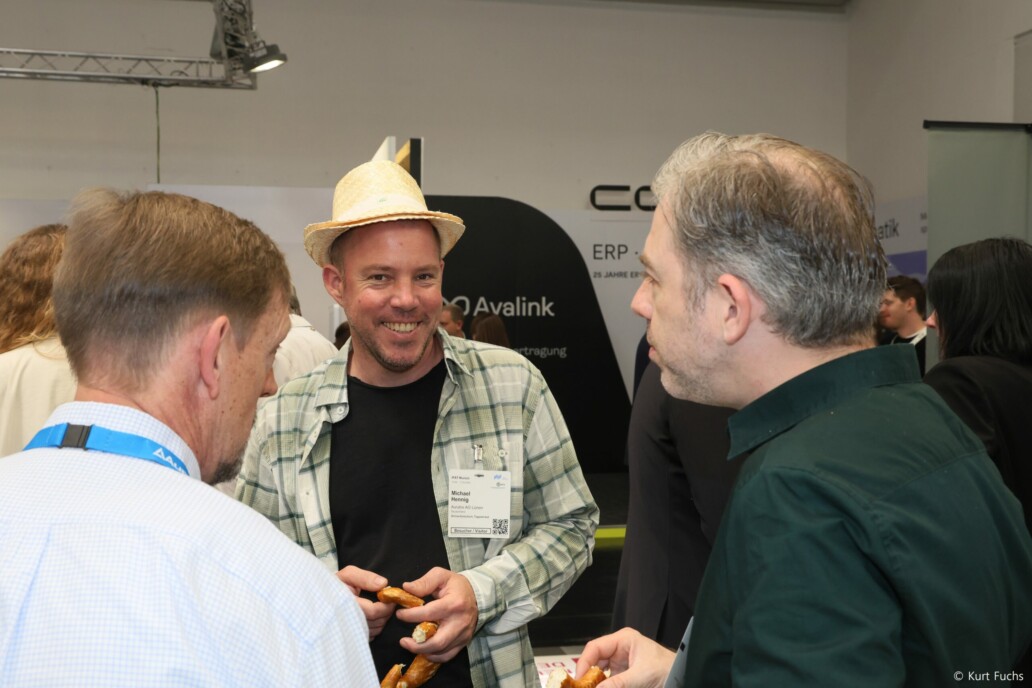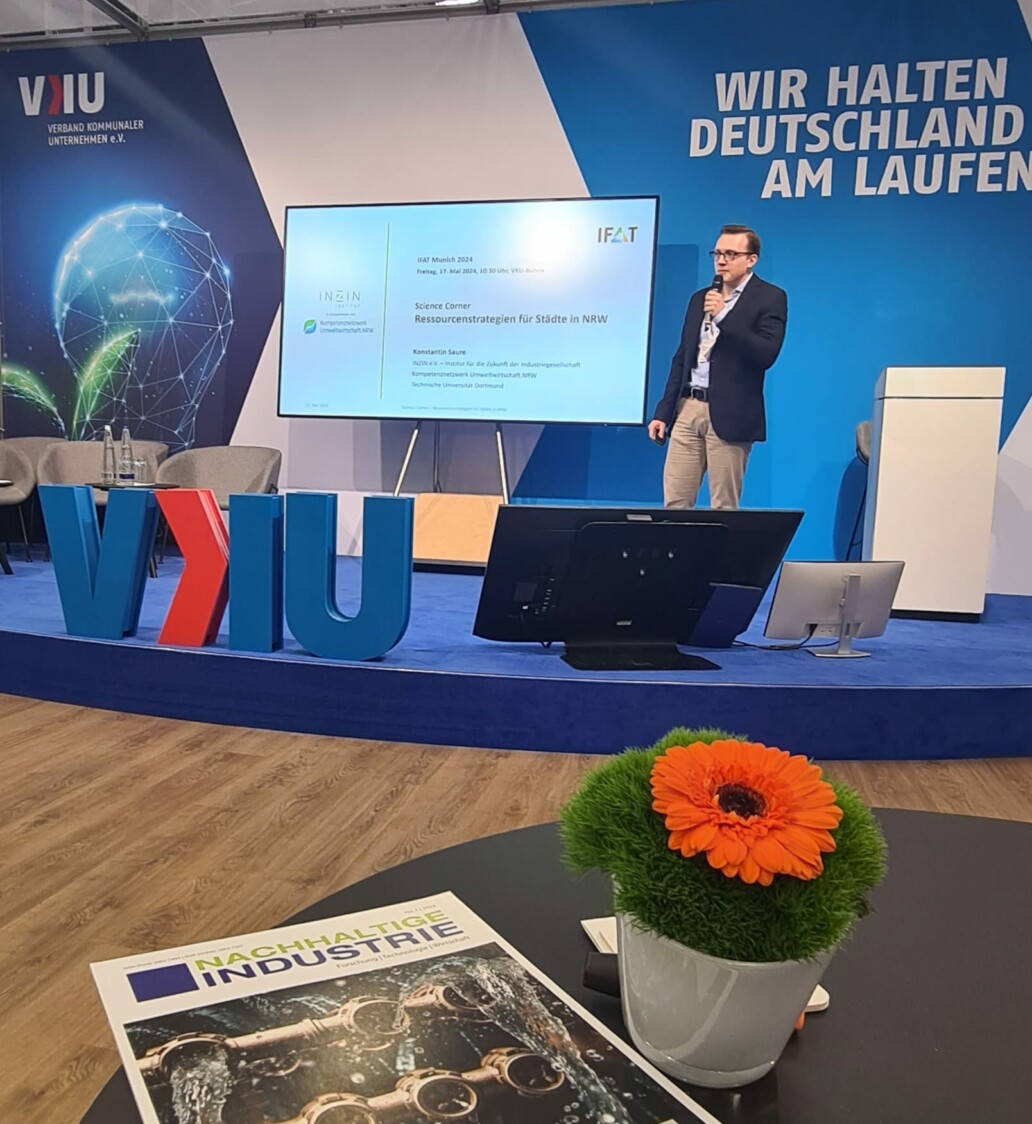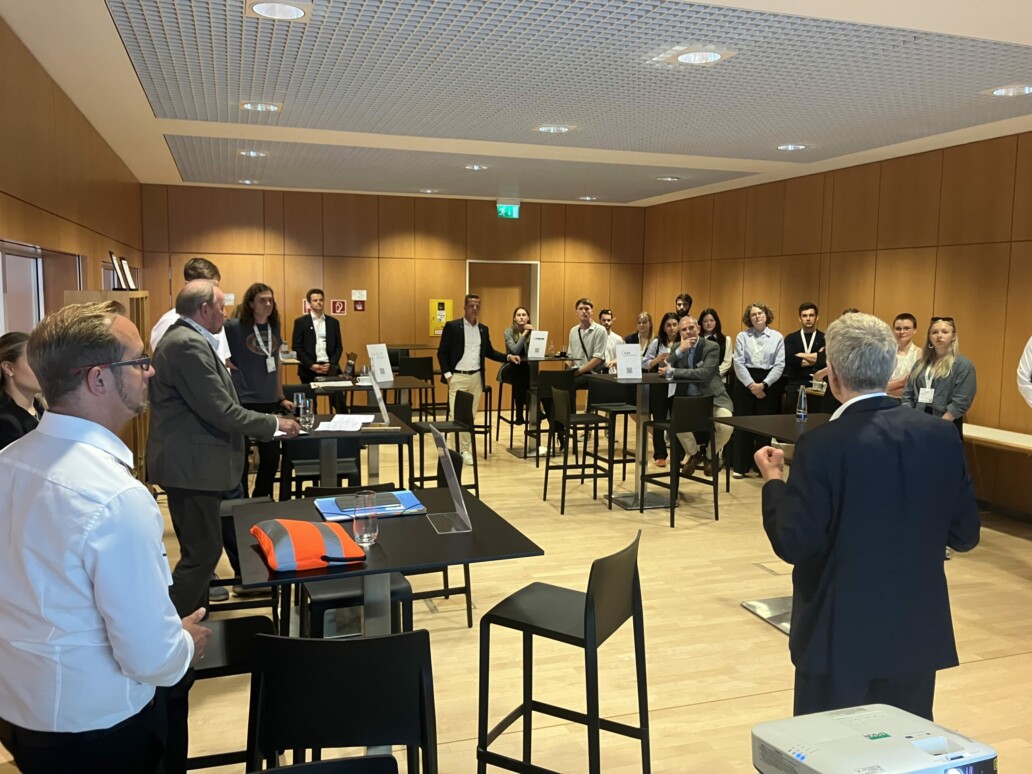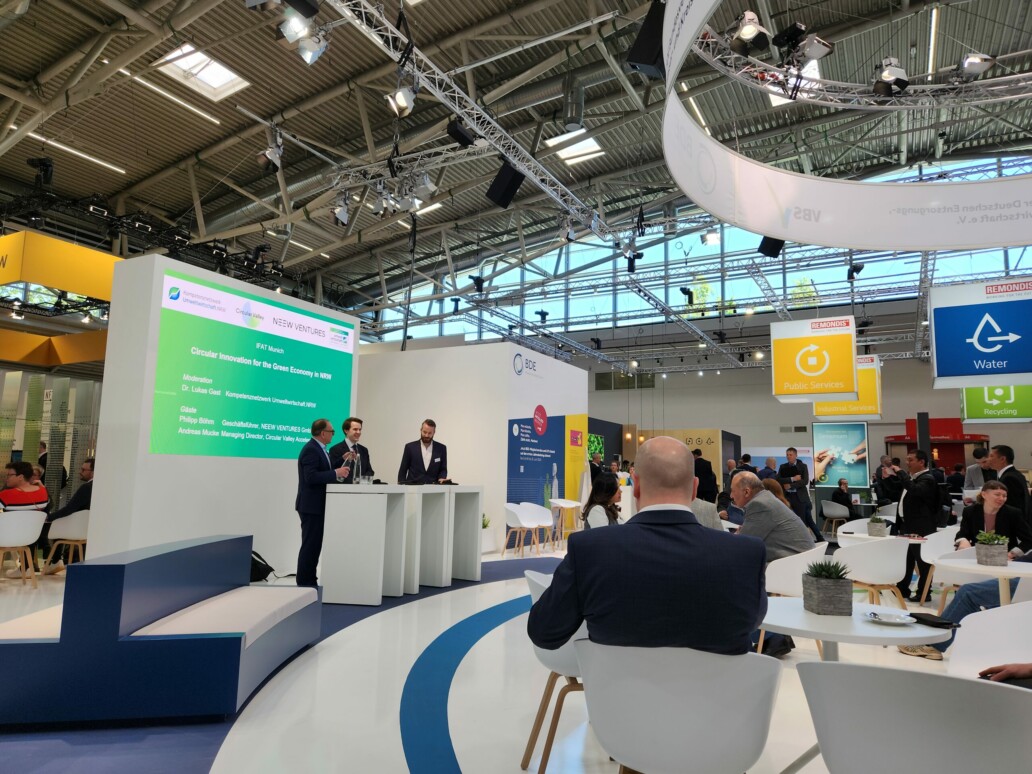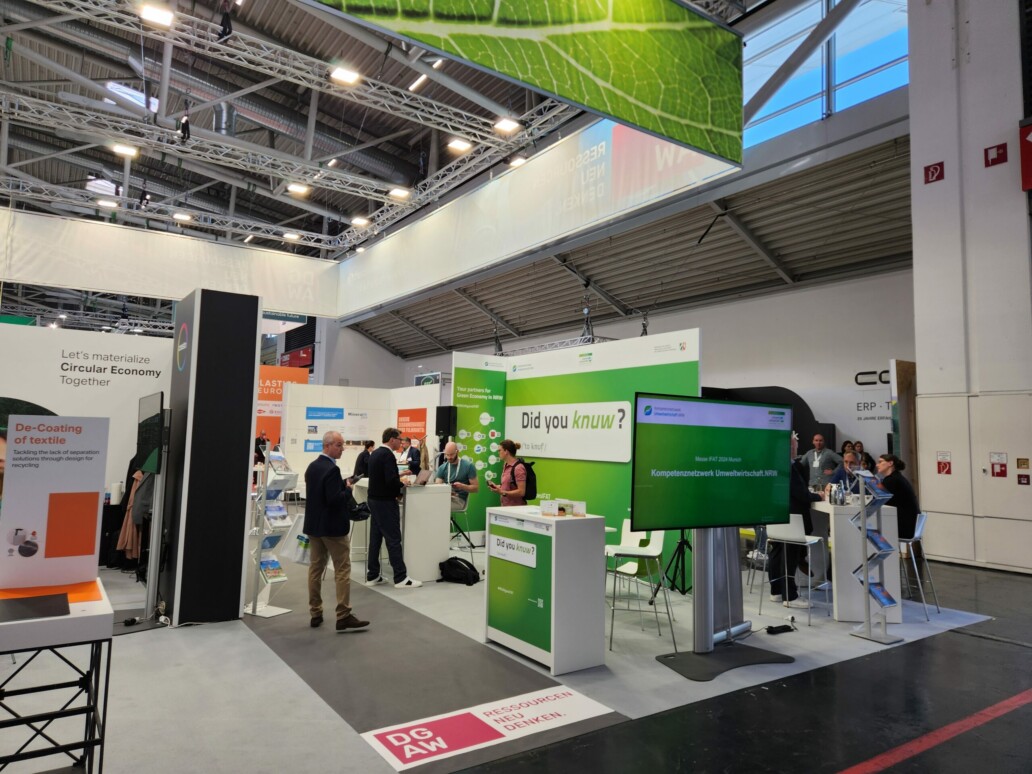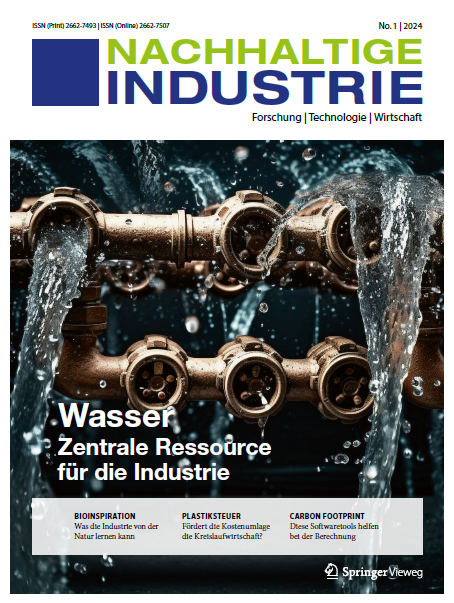10th Doctoral Seminar
Cara Schönmüller
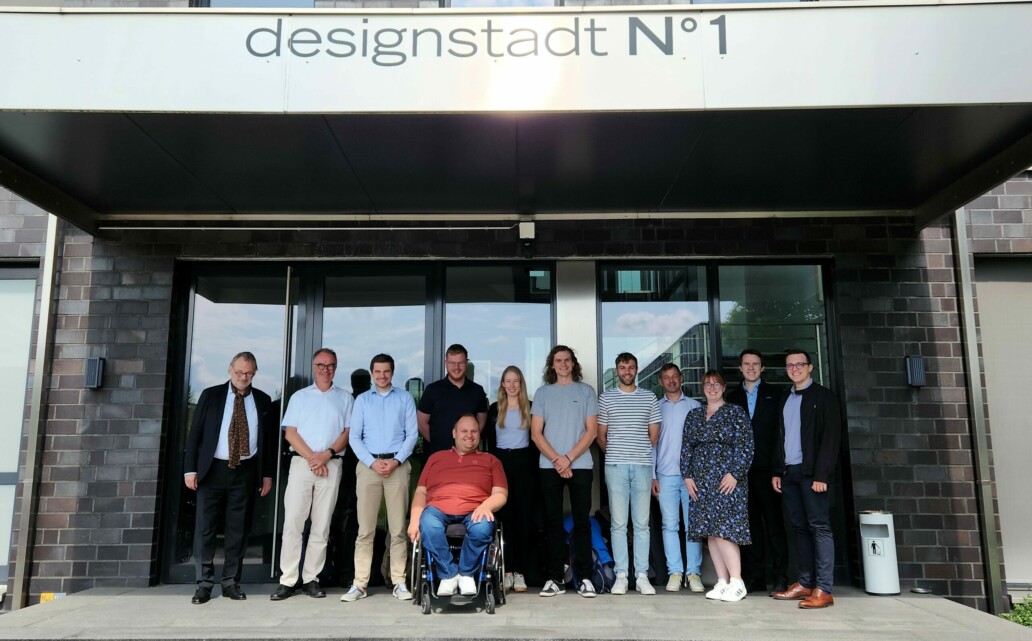
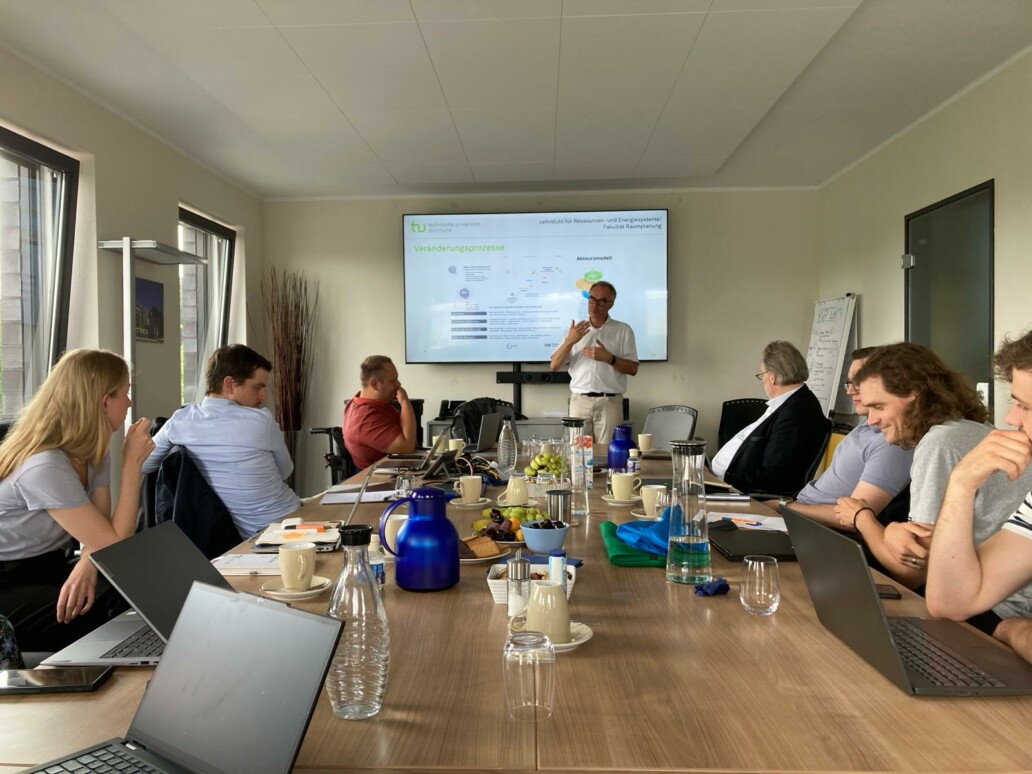
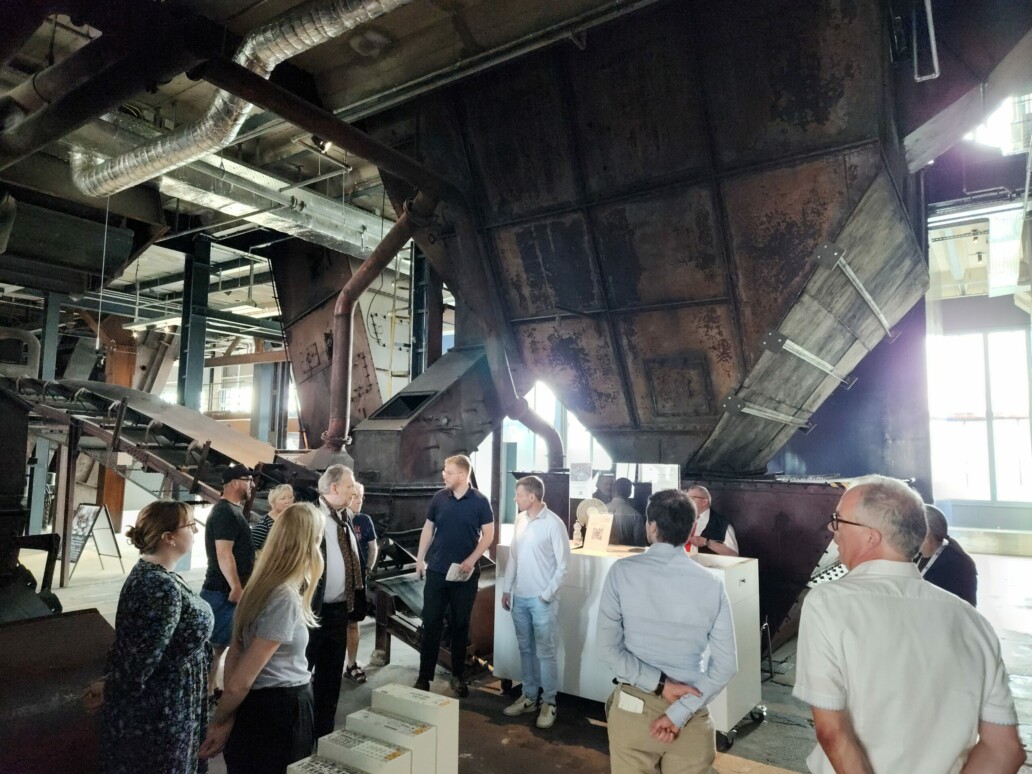
From July 24 to 25, 2024, the 10th doctoral seminar with Prof. Dr. Martin Faulstich’s doctoral students took place at the facilities of Gertec GmbH & Co. KG in Essen. A total of 11 doctoral students and our team leader Circular Economy Dr. Lukas Gast took part in the seminar.
The doctoral seminar began with an official welcome and a round of introductions, during which all participants were able to get to know each other. This introductory phase created a pleasant atmosphere and laid the foundation for a lively exchange and subsequent collaboration.
The first presentation by Andreas Hübner was entitled “How a research project might change my doctorate”. This was followed by a brief input from Ms. Esther Lutz from Gertec GmbH Co. KG, who presented a project idea on the topic of “Monitoring area planning tool (urban) forest”.
After a short break, INZIN scholarship holder Christian Großhauser shared the current status of his research after a year of doctoral studies.
After a joint lunch break, Mr. Torsten Weber from Gertec GmbH Co. KG gave a presentation on “Resource efficiency and circular economy in energy-efficient building refurbishment”. This was followed by a presentation and discussion by Dr. Lukas Gast, who gave an overview of the circular economy.
As a cultural highlight, the participants visited the Ruhr Museum on the grounds of the Zollverein Coal Mine Industrial Complex in Essen in the afternoon. This visit offered fascinating insights into the region’s industrial history and rounded off the seminar.
The second day began with a science speed dating session, during which the participants had short conversations about the highlights and challenges of their doctorates.
At the end of the seminar, there was a feedback session followed by the official farewell. Here, the experiences and insights of the seminar were reflected upon and next steps were planned.
We would like to thank all doctoral students for their dedicated participation, Andreas Hübner and Julian Leber for organizing the seminar and Gertec GmbH Co. KG for the use of their premises and are already looking forward to the next doctoral seminar.
General Meeting, Young Science Forum Summer Party
Cara Schönmüller
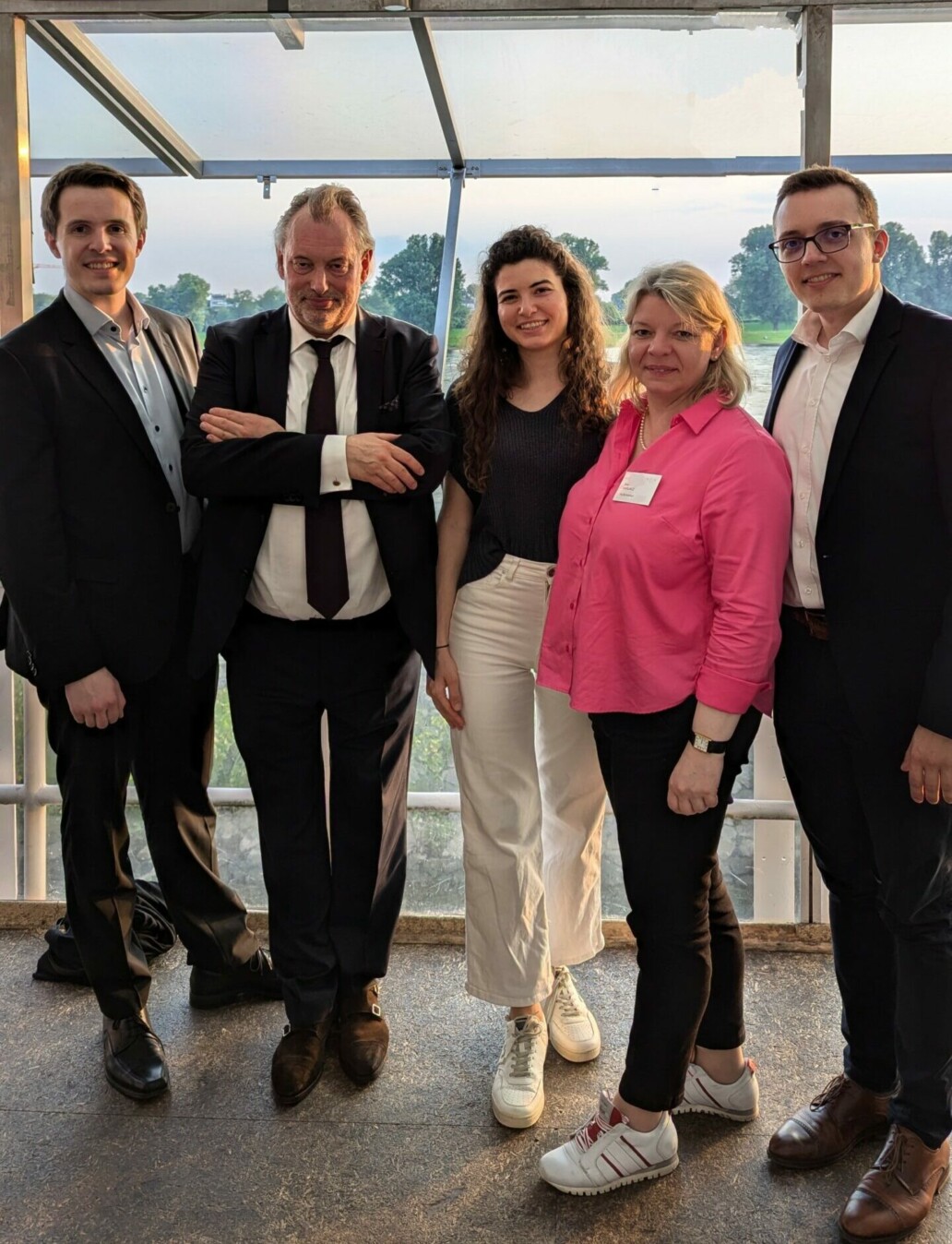
This year, the Young Science Forum and the INZIN summer party took place for the second time at the Canoo Club on the Rhine. First, however, the fifth INZIN General Meeting took place. We are very pleased that Prof. Dr. Martin Faulstich was re-elected to the Board of Directors of the INZIN Institute and would like to thank our members, whose support makes our work possible in the first place. Our scholarship holders had the opportunity to present their research topics at the Young Scientists’ Forum. Many thanks again to Dr. Lukas Gast, who introduced the INZIN Institute and the Circular Economy working group and moderated the forum, and to our scholarship holders Jule Jeschonowski-Papstein, Pauline Jegen and Konstantin Saure, who presented their complex research topics in an engaging and entertaining way. Finally, many thanks to our guests, whose participation made the evening very special.
We are already looking forward to many more exciting events and to shaping the future of industrial society together with you!
New INZIN scholarship holder Daniel Ohl
Cara Schönmüller
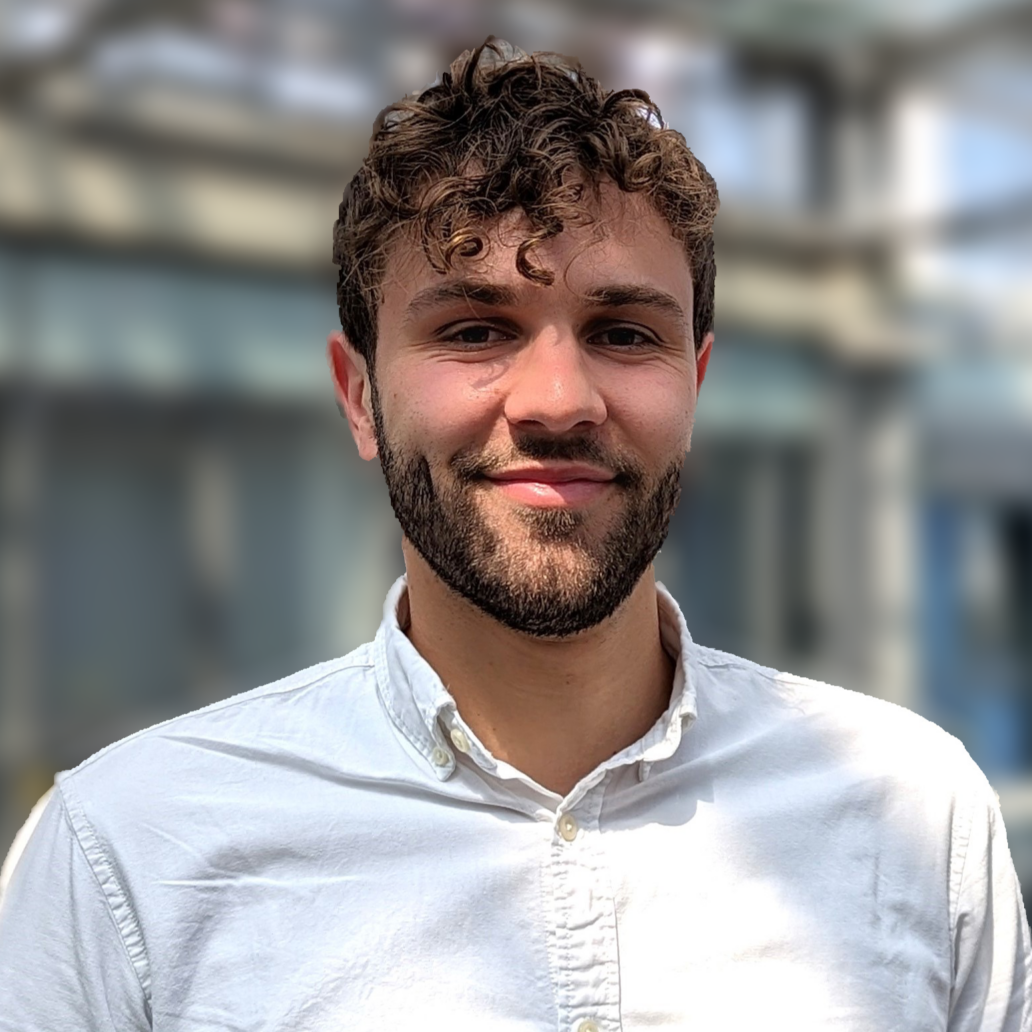
We are delighted to welcome Mr. Daniel Ohl to our team as a new INZIN Fellow on July 1, 2024.
Mr. Ohl is researching new indicators and evaluations of technologies for the circular economy. He completed his Master’s degree in Applied Chemistry at TH Köln in September 2023 with a focus on green and sustainable chemistry. Before that, he completed his Bachelor’s degree in Business Chemistry at Heinrich Heine University Düsseldorf. Last year, he completed an internship at Prognos AG in the field of sustainability consulting with first projects in the field of circular economy and chemical recycling.
Circular economy - rare earths and industrial metals
Cara Schönmüller
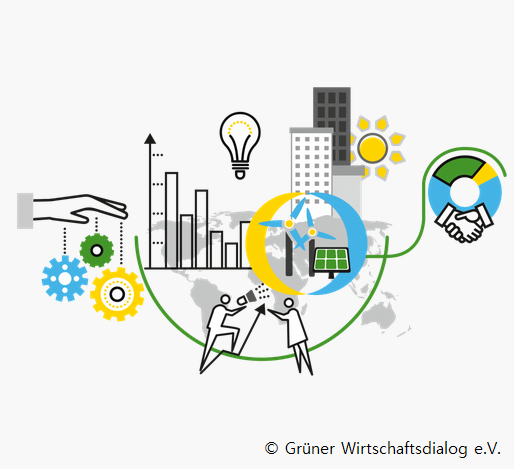
The transition to a decarbonized economy is increasing the demand for rare earths and industrial metals. Securing a sustainable supply of raw materials is therefore essential for the successful transformation of Germany as an innovative industrial location.
As Germany and the EU are heavily dependent on individual countries for the extraction and processing of rare earths and industrial metals, effectively recovering them and closing raw material cycles is a key challenge. This expert forum focused on the barriers that need to be overcome for a cross-sector circular economy.
Together with representatives from politics, science and industry, the expert forum discussed which political framework conditions could lead to more effective recovery of rare earths and industrial metals. Input from Dr. Michael Weltzin, Division IVB1 Mineral Raw Materials, Circular Economy, Technical Supervision BGR of the Federal Ministry of Economics and Climate Protection (BMWK), Dr. Lukas Gast, Team Leader Circular Economy at the Institute for the Future of Industrial Society (INZIN), and Dr. Britta Bookhagen, Head of the Recycling Raw Materials Department at the German Mineral Resources Agency (DERA), contributed to a successful event.
Daniel Ohl
Cara Schönmüller
Master of Science (M. Sc.)
Email: daniel.ohl(at)inzin.de
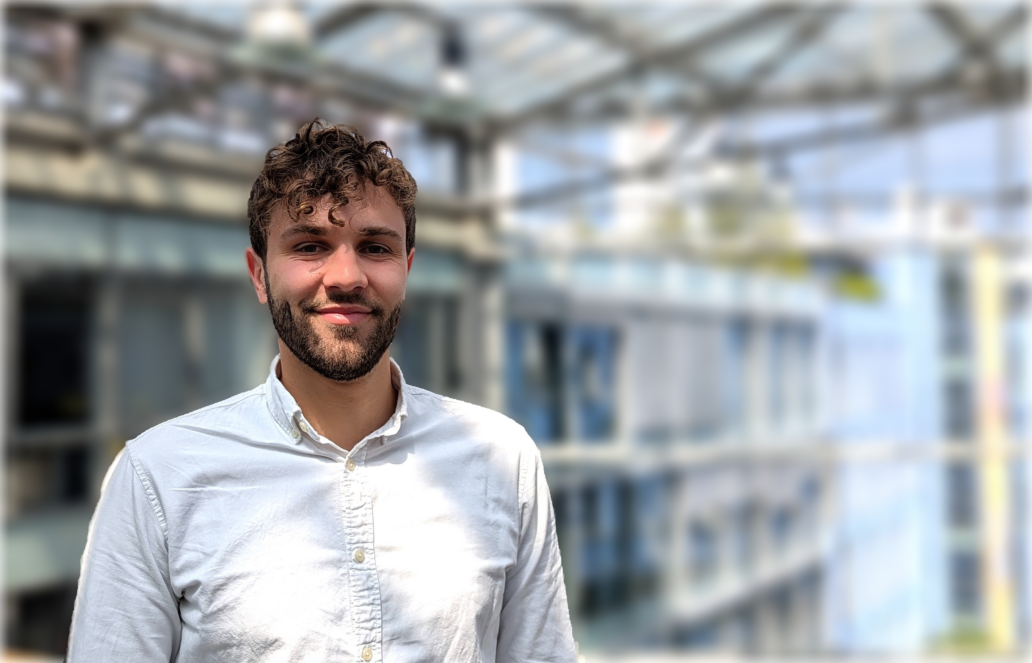
Vita
Daniel Ohl has been a scholarship holder at the INZIN Institute since July 2024 and is researching new indicators and assessments of technologies for the circular economy. He completed his Master’s degree in Applied Chemistry at TH Köln in September 2023 with a focus on green and sustainable chemistry. Before that, he completed his Bachelor’s degree in Business Chemistry at Heinrich Heine University Düsseldorf. Last year, he completed an internship at Prognos AG in the field of sustainability consulting with first projects in the field of circular economy and chemical recycling.
Prof. Dr. Martin Faulstich as a guest at "Zukunftsorte"
Cara Schönmüller
How true is this theory? We discuss this in this episode. Our guests: Karin Teichmann from Euref and Professor Martin Faulstich from TU Dortmund University.
Several degree courses are currently being developed for the Euref campus in Düsseldorf, whose graduates will definitely earn their money with transformation. Furthermore, research is being carried out on the future topic of hydrogen.
The Euref campuses in Berlin and Düsseldorf are also teaching and research locations. In Berlin for a very long time. In Düsseldorf, the corresponding degree programs are just being created. The man pulling the strings is Martin Faulstich. He is a senior professor at the Technical University of Dortmund and research coordinator of the University Alliance Ruhr. His own research focus as an environmental and energy engineer: How can industrial companies in particular manage the change? He is on the Scientific Advisory Board of the Talent Campus and heads up the scientific activities at the Euref Campus Düsseldorf, which will be completed later this year.
The campus idea is also close to the heart of a woman who has been a guest on the Zukunftsorte podcast several times. Karin Teichmann is Spokeswoman of the Board of Directors of Euref AG.
How do you design new degree programs that are practical but don’t lose sight of the basics? What transformation issues do universities face and how do they tackle them? And what role does research play in the energy transition?
That was IFAT Munich 2024
Cara Schönmüller
Circular innovations for a green economy in NRW
The expert discussion with Andreas Mucke (Circular Valley) and Philipp Böhm (NEEW Ventures GmbH) was moderated by Dr. Lukas Gast (KNUW). The panel discussion provided an overview of new and existing circular business models, the innovation landscape in NRW with concrete examples of successful start-ups that address the challenges of the circular economy from digitalization and AI to product design and recovery through to recycling with the aim of closing material cycles and contributing to a circular economy.
Hydrogen and the circular economy are growing together in the Ruhr metropolis
The Ruhr region is one of the most important economic regions in Europe and, due to its energy-intensive industries, will need to have an even more extensive hydrogen infrastructure in the future. Key customers include the chemical and metallurgical industries, plant and mechanical engineering, the logistics sector and companies in the circular economy. Prof. Dr. Martin Faulstich and Christina Zollmarsch from Business Metropole Ruhr GmbH spoke about the potential and challenges of the regional hydrogen economy and its integration into the future circular economy in NRW.
Greenhorn meets Expert
At the Greenhorn meets Expert event, INZIN fellow Christian Großhauser presented the activities of the INZIN Institute. During speed networking, the “greenhorns” were able to exchange ideas with the “experts” and get to know their potential employer.
Science and business: shaping innovation together
During the panel discussion, which was moderated by Holger Lange (Stadtreinigung Hamburg), Prof. Dr. Martin Faulstich emphasized the relevance of cooperation between science and industry in order to drive innovation.Green Economy as a driver of innovation in NRW
Green Economy as a driver of innovation in NRW
At the event, which was chaired by Dr. Ewa Harlacz and INZIN scholarship holder Konstantin Saure, innovative start-ups from NRW presented their digital business models in the areas of circular economy, water management and mobility and showed how they can contribute to the sustainable development of the region.
HiiCCE Science Corner “Young science in the waste management industry”
As part of his presentation “Resource strategies for cities in NRW”, INZIN scholarship holder Konstantin Saure presented the current status of the circular economy in NRW and outlined possible future developments.
Other special highlights of IFAT Munich 2024 were the visit by State Secretary Viktor Haase and the signing of the “Circular Value Creation Round Table Charter”.
State Secretary Viktor Haase explained: “We want to make North Rhine-Westphalia the first climate-neutral industrial region in Europe. This transformation will be a major effort. However, we will only succeed if we manage to drive forward the ecological transformation and at the same time make our federal state one of the most sustainable and competitive business locations in Europe. In a modern economy, climate protection, the preservation of our natural resources, good jobs and social security are inextricably linked. The circular economy is an important lever for achieving this goal of transformation.”
Another highlight was the KNUW-DGAW joint brunch with over 50 participants from various companies and associations. With pretzels, veal sausage, wine and wheat beer, the penultimate day of the trade fair was heralded in a relaxed atmosphere and at the same time offered the opportunity for mutual exchange and networking.
We would like to thank all participants for their interest in our formats, DGAW for the joint stand and support and our colleagues from the KNUW team!
